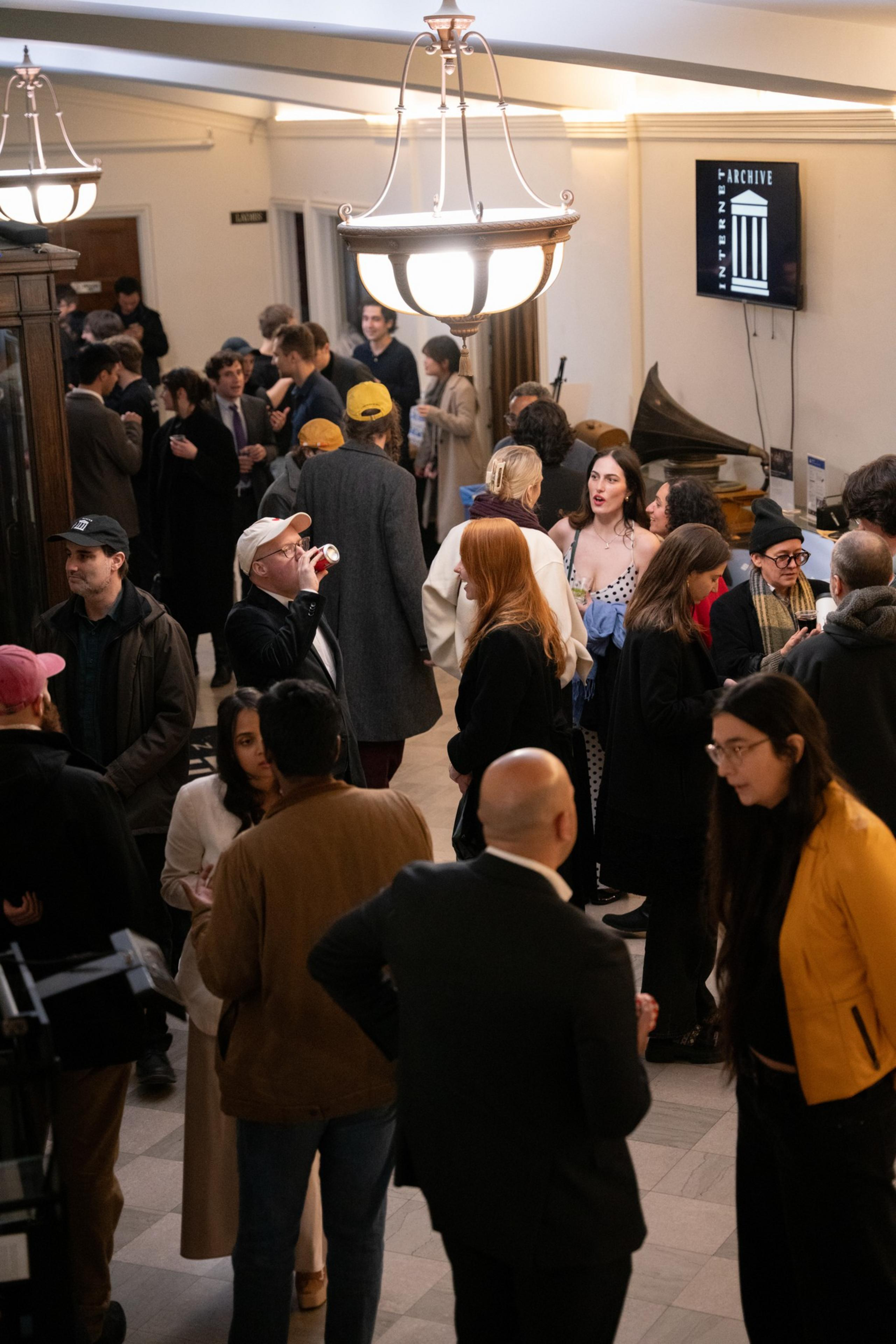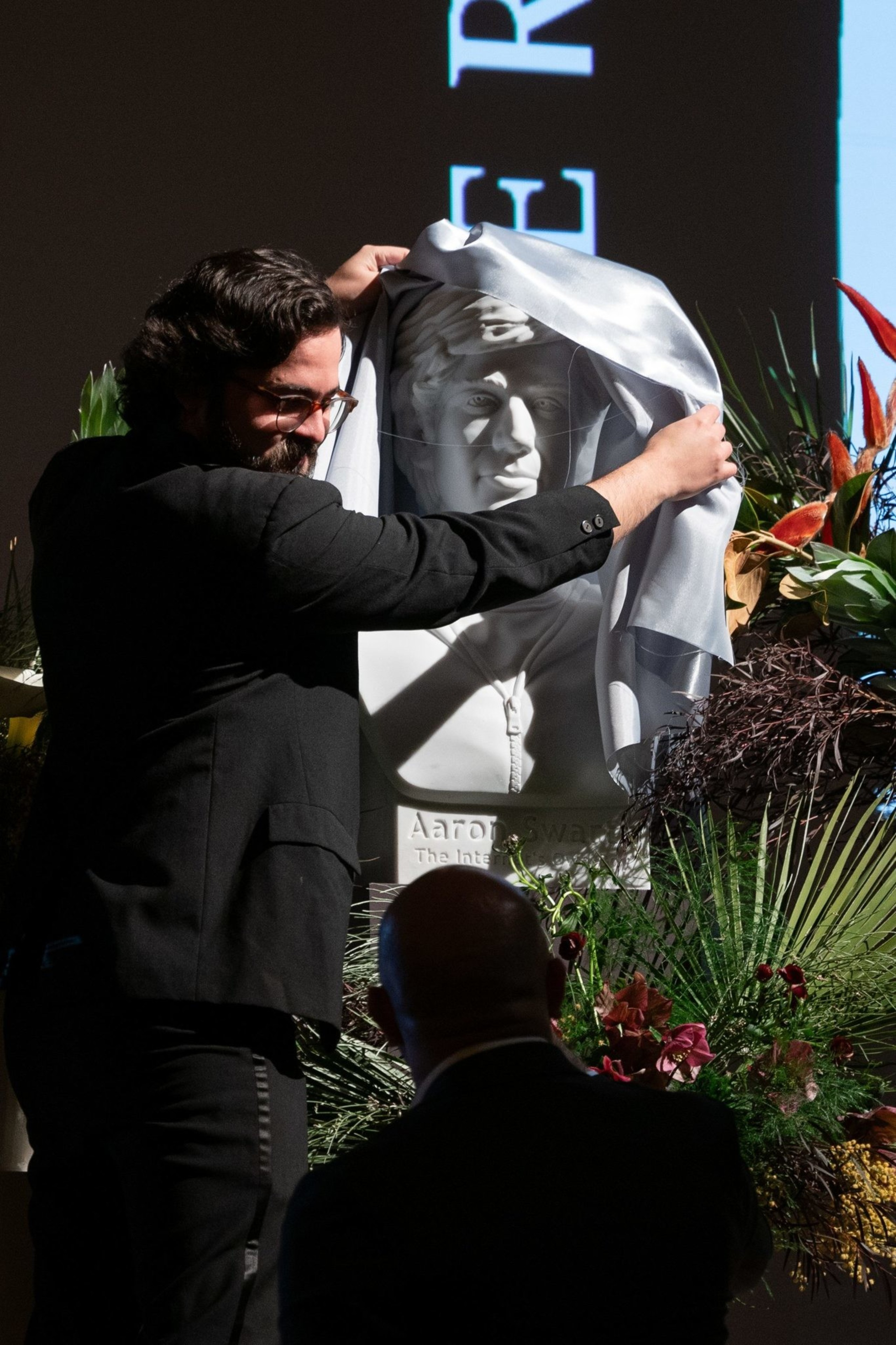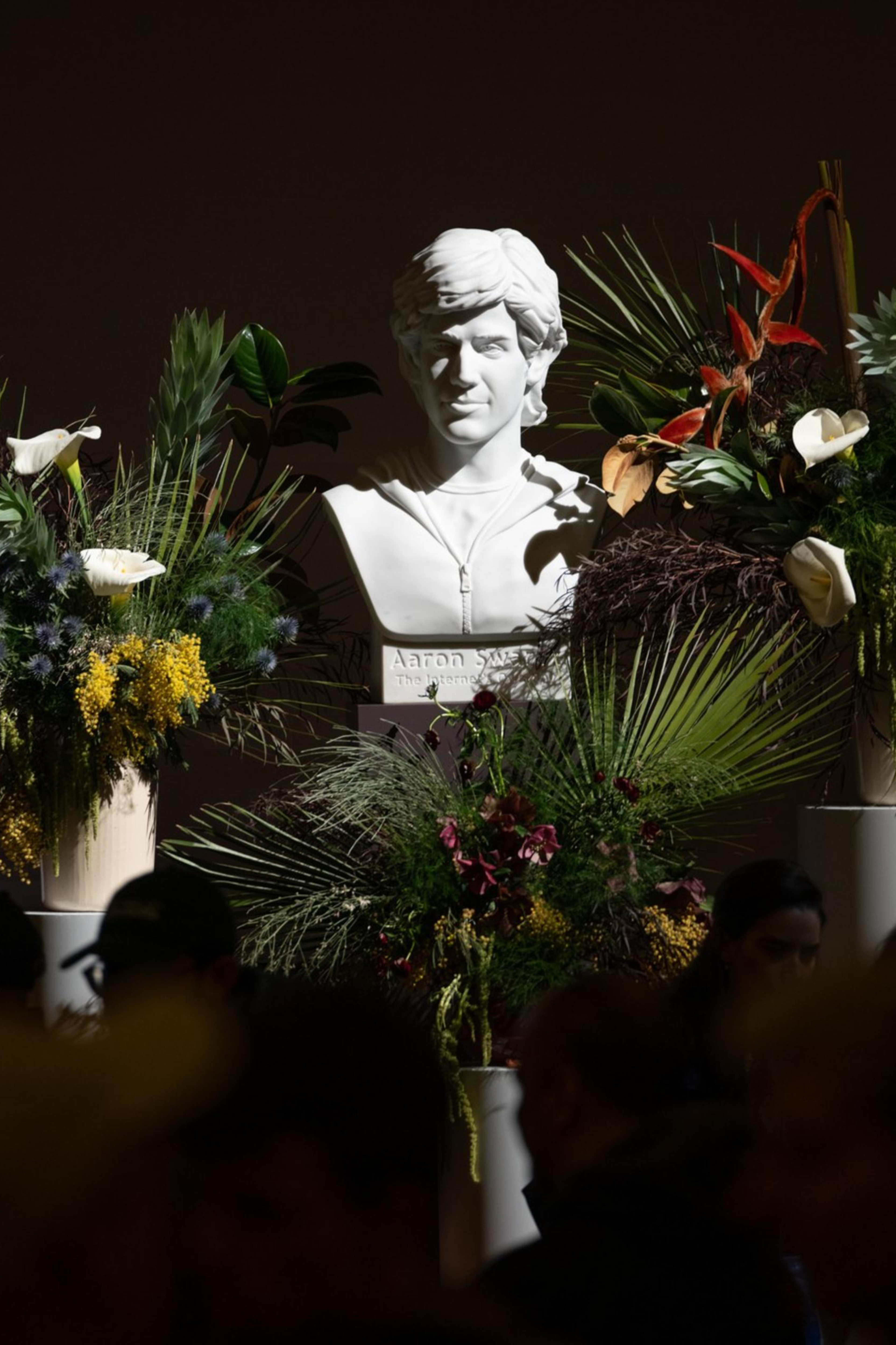Around 300 people gathered Friday in the pews of the Internet Archive auditorium to witness Pablo Peniche, head of growth for the startup Aqua Voice, unveil a marble bust of the late Aaron Swartz, the programmer, activist, and open-access hero.
Swartz — who co-founded Reddit, helped develop RSS, and was instrumental in the creation of Creative Commons — is an icon of the internet freedom movement.
At 27, Peniche is a year older than Swartz was when he died by suicide in 2013, following federal prosecution for downloading millions of academic papers from JSTOR via MIT’s network.
“I never met Aaron, but I knew he was one of us: a dreamer, a builder, a tech bro,” Peniche told the audience. “Our free speech is being infringed upon. … We need to preserve internet values.”

More than a decade after his death, Swartz’s name is a rallying cry for open-source technology and freedom of information. Few at the event knew him personally, but he has become an enduring symbol for web activists, who are increasingly grappling with an internet locked behind paywalls and controlled by a handful of corporations.
“There’s a renaissance happening now in Aaron Swartz-land,” said Lisa Rein, co-founder of Creative Commons, a nonprofit devoted to expanding public access to information. She founded Aaron Swartz Day, an annual hackathon and tribute held on his birthday, in 2013.
There’s now an Aaron Swartz Institute in Brazil, a documentary, books and podcasts — even a memecoin. (“Do not buy,” Rein warned.)
“It’s great that people idolize him as long as they get the story right: He was not a martyr,” said Rein, her eyes welling with tears. “He stood for freedom of access to information, especially for scientific research — things the public had already paid for.”
The evening included a number of video tributes, played on a large screen behind the stage. They included commentary from science fiction author Cory Doctorow, members of the Aaron Swartz Institute in Brazil, and Cindy Cohn, executive director of the Electronic Frontier Foundation.
“Aaron’s legacy is bringing people together to make change,” Cohn said. “This statue is a powerful reminder of the truth and justice that he stood up for.”

Doctorow’s comments included a grim allusion to the Trump administration. “This is a time when hope is in short supply,” he said. “I hope this [statue] inspires you to have hope … to make the world a little better in some material way.”
Swartz’s philosophy that information should be freely accessible to all is at the core of the Internet Archive, which preserves websites, books, and academic papers, among other materials. “We were happy to host the event, said Evan Sirchuk, the Internet Archive’s community and events coordinator. “It’s a really good fit, in terms of alignment.”
The 312-pound, Carrara marble bust was made with a mix of AI-driven robotic milling (opens in new tab) and traditional hand carving. Peniche invested $10,000 of his own money into the project; the remaining $53,500 came from donors that included Intercom CEO Eoghan McCabe and Mana CEO Max Novendstern. Swartz’s mother provided photos used to design the statue and signed off on it, Peniche said.
Peniche, who was a teenager in Mexico when Swartz died, was obsessed with making this project happen. “We have to preserve net neutrality,” he said. “We must preserve freedom of speech, access to information and privacy. This statue stands for something people can rally behind.”
Anna-Sofia Lesiv, 27, an investor at Humba Ventures, agreed. “Celebrating Aaron’s legacy is incredibly overdue in San Francisco,” she said. “He’s been a very inspiring figure to me, before I ever even came to Silicon Valley.”
For most of the evening, the bust sat shrouded onstage, its pillar surrounded by oversize bouquets.
Finally, Peniche pulled off the cloth with a flourish. It looked remarkably lifelike, Rein said. Swartz’s expression was contemplative, his hair tousled, the folds of his signature hoodie perfectly carved. His name and “The internet’s own boy,” were inscribed below the bust, referencing the 2014 documentary about Swartz’s life.

Emmett Shear, the former CEO of Twitch and a partner at Y Combinator, was one of the few who knew Swartz personally. “I’m glad he’s become a symbol. He would approve of that,” he shared, his voice breaking. “I really miss him.”
The bust will be moved next week to the lobby, where it will remain until Peniche secures a permit to place it in a local park, Sirchuk said.
“Seeing a statue of someone you actually know, instead of yet another old white guy who paid to be there, would be really nice,” Rein said. “Aaron really means something to the San Francisco community. He can keep inspiring generations — even the ones who weren’t alive when he was.”

